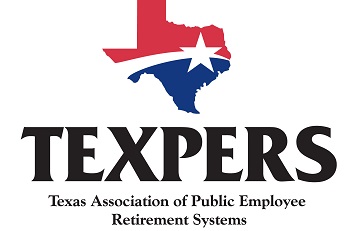By Thomas J. Mackell, Jr., Ed.D.
Special Advisor to the International President
International Longshoremen's Association, AFL-CIO
This is an age of fractured jobs, a fractured economy, fractured
families, a fractured political system, a terribly fractured American Dream and
where the political protagonists, our elected leaders, are in need of spinal
transplants.
The soon-to-retire greying generation is experiencing no
pensions. Those pensions are promises that will not be kept, leaving thousands
of employees in dire straits when they are most vulnerable. Roller-coaster
retirement accounts subject to the whims of the market. Longer life spans and
higher health care costs. Children in college. Young adults with staggering
student-loan debt who are financially incapable of purchasing a home. Aging and
ailing parents. A will to work but fewer jobs to be had.
America is dying for a champion who makes preserving the
middle class a top priority. They want somebody who can level the playing field
so that Main Street doesn't always come second to Wall Street. Someone who is
not running networks of oligarchs who take advantage of our weakened campaign
finance laws to manipulate the democratic process in pursuit of their
self-interests.
This is the scenario as we head into the 2014
Congressional elections with predictions that Republicans will hold the House
of Representatives and ,perhaps, gain control of the Senate.
If that happens, forget a Congress that looks out for the
little guy.
In conjunction with a non-caring Congress, today,
unfortunately, the concept of freedom has come to mean the freedom of the
wealthy to do whatever they want, without regard to the consequences for the
rest of us. In reality, the 1 percent has undertaken a serious effort to buy
elections.
At any kind of gathering whether it be at work or at
home, Americans are expressing disappointment about the way things run in
Washington. They don't see them dealing with the multitude of problems facing
our nation.
Their approval rating is at an all-time low. Many
citizens say they see no value in bothering to vote.
Clearly, the constant bickering between the Republicans
and Democrats is wearing thin on Main Street and leads to a notion of false
equivalency.
The Pew Research Center says that Republicans and
Democrats are more divided along ideological lines than at any point in the
last two decades.
The GOP has done all it can to undercut the Obama
presidency. Democrats had to fight back. The line is drawn in the sand which
has resulted in blind allegiance or blind hatred.
But let's put the blame where it belongs: on the
Republican side of the aisle. The Republicans must end their internal civil war
between the moderates and the Tea Party aficionados.
Recently, a number of the members of Congress who have
announced their plans to retire have expressed their frustration with the
cantankerous environment in Washington and their inability to get things done.
When even the pols start complaining, you know that
things are really bad. If they can't find solutions then we are, truly, in deep
trouble.
Despite this horrendous dilemma, failing to vote surely will
make things worse. We have a solemn obligation to go to the polls. Neglecting
the most fundamental responsibility of citizenship invites complacency and
encourages political abuse. Showing up on Election Day proves we are in the
game, that we care and that we want to see change.
There are areas of this country where people have been
removed from the ranks of eligible voters and GOP operatives are doing all they
can to suppress participation by traditional Democratic constituencies.
Today, the American workplace is plagued with wage theft,
disrespect of culture, pressure, unsafe environments, unbridled automation and
more.
Everything solid is melting into air. This should not be
tolerated in modern America. We must vote our pocketbook to protect our livelihoods
and our well-being.
We must encourage our union memberships, thoughtful young
folks and retirees to go out on Election Day and exercise their right to vote.
They must be engaged in their communities and serve as an
example to those who might stay away. Staying home is not an option. It will
only continue and calcify this dangerous divisiveness.

